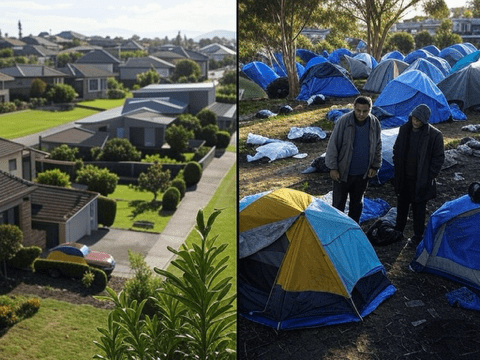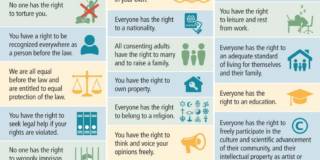
Abstract
Australia’s financial landscape in 2024 starkly illustrated the widening gap between the swelling fortunes of its billionaires and the financial hardships faced by ordinary families. Over the year, the collective wealth of the country’s 47 billionaires surged by AUD $28 billion, equivalent to an average increase of AUD $3.2 million per hour. This imbalance highlights a deepening economic divide fueled by rising housing costs, stagnant wages, and soaring inflation, with marginalized groups – such as women and First Nations peoples – bearing the brunt. This paper examines the consequences of this wealth disparity, the lingering impact of colonialism, and proposes actionable reforms to foster a fairer and more inclusive society.
Introduction
The ever-growing concentration of wealth among the ultra-rich has become a hallmark of contemporary economies, and Australia is no exception. In 2024 alone, the country’s billionaires amassed an additional AUD $28 billion in combined wealth, presenting urgent questions about economic fairness, social responsibility, and the imbalance of power in addressing societal inequities. As the cost-of-living crisis continues to escalate, with daily essentials becoming less affordable, the sharp contrast between extreme wealth accumulation and chronically underfunded public services raises critical ethical and policy challenges for Australia.
The State of Wealth Inequality
Billionaire Wealth Expansion
Australia’s billionaires have seen their wealth grow at staggering rates, averaging AUD $67,000 every hour per individual – more than 1,300 times the hourly wage of an average worker (ACOSS, 2024). This trend underscores the accelerating gap between the wealthiest and the rest of society, sparking concerns about its effects on long-term social stability. According to the Australian Council of Social Service (ACOSS), the richest Australians continue to thrive financially even as large segments of the population struggle to secure basic necessities. This phenomenon has raised alarms about the implications for democracy, social cohesion, and economic sustainability.
Cost-of-Living Pressures
In sharp contrast, countless Australian households are battling a worsening cost-of-living crisis, driven by surging housing prices, stagnant wages, and unrelenting inflation. Data from the Australian Bureau of Statistics reveals that rising inflation has significantly eroded purchasing power, leaving many families unable to afford essentials. Median house prices in major metropolitan areas have ballooned to such an extent that homeownership is now out of reach for many low- and middle-income Australians. This growing disconnect between the economic reality for ordinary citizens and the prosperity of the wealthiest highlights the uneven impact of the current system. A report from the Australian Bureau of Statistics (2024) indicated that housing costs have risen by 15% over the past year, exacerbating the financial strain on households.
The Legacy of Colonialism
Australia’s historical legacy of colonialism continues to shape today’s economic inequalities. Aboriginal and Torres Strait Islander peoples remain disproportionately represented among the nation’s poorest demographics, with one-third falling into the lowest income quintile and earning, on average, 28% less than their non-Indigenous counterparts (World Bank, 2023). This entrenched systemic inequity perpetuates cycles of poverty and exclusion, demanding targeted interventions to rectify historical injustices and mitigate their ongoing effects. The economic disparities faced by Indigenous Australians are not merely a consequence of contemporary policies but are deeply rooted in a history of dispossession, discrimination and marginalisation.
Proposals for Reducing Inequality
Taxing Billionaires for a Fairer Society
A key proposal for tackling wealth inequality is the introduction of a wealth tax on billionaires. Currently, billionaires pay an effective tax rate of just 0.3% on their wealth – a stark contrast to the tax burdens shouldered by everyday citizens. Redirecting the revenue from such a tax into vital sectors like healthcare, education, and affordable housing could significantly ease the pressures faced by struggling households. Advocating for such progressive tax reforms ensures the ultra-rich contribute equitably to societal welfare. For instance, a modest 1% wealth tax on billionaires could generate approximately AUD $1.4 billion annually, which could be allocated to public services that disproportionately benefit low-income families.
Holding Major Corporations Accountable
Alongside higher taxes for billionaires, there is a critical need to address tax avoidance among large corporations. Recent reports reveal that nearly one-third of major Australian companies – including top mining and energy firms – paid no income tax in their most recent reporting year (ACOSS, 2024). At the same time, record corporate profits have soared, with the largest 500 companies raking in an additional AUD $98 billion in excess pandemic-era profits. Implementing windfall profit taxes and closing corporate tax loopholes are necessary steps to ensure businesses fairly support the economy and broader society. By holding corporations accountable, the government can ensure that economic growth translates into tangible benefits for all Australians, rather than being concentrated among a privileged few.
Dismantling Modern Colonial Dynamics
Addressing systemic global inequality requires confronting the enduring structures of modern-day colonialism that exploit the Global South for the benefit of wealthier nations, including Australia. As a leading nation, Australia can champion international changes through bodies like the United Nations and the World Bank to support equitable development. Empowering underserved nations to break free from exploitative economic systems is vital for fostering a more balanced global economy. This involves not only foreign aid but also fair trade practices that prioritize the economic sovereignty of developing nations.
Fostering Equity to Eliminate Poverty
The Palma ratio, which posits that the top 10% of earners should not receive more than the bottom 40%, offers a valuable framework for tackling income disparities. According to the World Bank, reducing inequality could speed up the elimination of poverty threefold (World Bank, 2023). Policymakers should prioritize redistributive actions that promote greater income equality, enhance upward mobility, and invest in building a more just society. This can be achieved through targeted social programs, education reform, and initiatives that support small businesses and entrepreneurship in disadvantaged communities.
Counterarguments
Critics of the recommended reforms argue that higher taxes on wealthy individuals and corporations risk discouraging innovation and investment, potentially slowing economic growth. Some suggest that concentrated wealth in the hands of billionaires fuels entrepreneurial ventures and job creation, benefiting society in the long run. Additionally, there are concerns that overregulated markets and heavy taxation could prompt capital and businesses to migrate to countries with more favourable tax regimes.
However, many studies demonstrate that the economic advantages of wealth redistribution – from improved social services to reduced inequality – far outweigh these theoretical risks. Nations with progressive tax systems frequently enjoy both lower income inequality and robust economic growth, proving that equitable wealth sharing and prosperity can go hand in hand. For example, Scandinavian countries, which implement high tax rates on the wealthy, consistently rank high in both economic performance and quality of life metrics, challenging the notion that wealth concentration is necessary for economic success.
Conclusion
The stark contrast between ballooning billionaire wealth and the deepening struggles of ordinary Australians underscores the urgent need for meaningful policy action. By addressing economic imbalances through measures such as wealth taxes, corporate responsibility, dismantling exploitative systems, and tackling inequality head-on, Australia can set a course toward a fairer, more inclusive future. Now is the moment for bold reforms to reshape a system that too often privileges the few at the expense of many. Creating an economy that works for all Australians requires decisive action, and the urgency for change has never been greater.
References
1. Australian Council of Social Service (ACOSS). (2024). “Inequality in Australia: A Statistical Overview.”
2. Australian Bureau of Statistics. (2024). “Consumer Price Index and Housing Affordability.”
3. World Bank. (2023). “Inequality and Poverty: Global Perspectives and Strategies.”
4. International Monetary Fund. (2024). “Fiscal Policy and Wealth Distribution: A Global Perspective.”
5. United Nations. (2024). “Addressing the Impact of Colonialism on Economic Inequality.”


